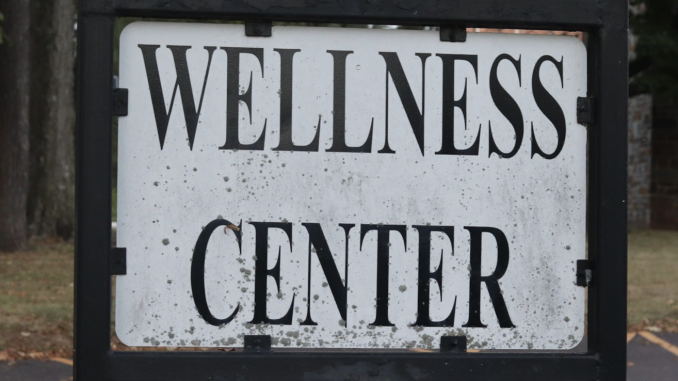
Tatiana Kent (takent@ursinus.edu)
College students across the country have faced increasing mental health struggles over the past decade, and Ursinus College is no exception. To meet the demand for support, the Wellness Center recently employed additional therapists.
Dr. Lauren Finnegan, Ursinus’s Executive Director of Counseling and Wellness, explains that “we currently have three full-time psychologists, one full-time clinical social worker on staff, and four part-time doctoral psychology trainees.” Five years ago, there was only one psychologist and two doctoral trainees on staff. The team has since grown.
For the last three years, Finnegan has worked at Ursinus and has witnessed an increase in need. “We noticed that our students were reporting a slightly higher than the national average level of distress in the areas of academic issues, social anxiety, and eating concerns. I think much of this makes sense, contextually, with the way in which COVID affected our ability to: learn in a way that we were accustomed to; our opportunities to socialize; and the manner in which we maintained our physical health and lifestyle. I am curious to see if these areas continue to be of particular concern for our students or if moving further away from the more acute period of COVID will stabilize these levels a bit.”
According to the American Psychological Association, there are not enough licensed psychologists in the U.S. to meet the demand for mental health services. The Biden administration addressed the crisis back in March, noting that 40% of American adults report symptoms of anxiety or depression and that people of color have been disproportionately undertreated. Just this summer, the U.S. Department of Health and Human Services launched the 988 hotline – a number any American can call at any time if they’re experiencing a mental health crisis, such as suicidal thoughts. Finnegan echoes these concerns. However, as a professional, “I do worry that, if we don’t find better ways of supporting our clinicians in the field and making mental health care more accessible, we will have even greater issues down the line. In the area of college counseling specifically, we are seeing greater burnout and more clinicians leaving campuses to work in private practice settings,” explained Finnegan.
Rileigh Owens, a junior, has been attending Wellness Center therapy since her freshman year. She previously had to attend appointments over Zoom due to COVID, and feels that her current in-person sessions are much more effective. “I really like the Wellness Center and my therapist now. It’s a great resource to have on campus, especially for those that don’t have a therapist, can’t see theirs from their hometown, or can’t afford to see one otherwise.” However, she notes, it can be difficult to schedule sessions due to therapist availability. “I had to book my first therapist appointment this semester two weeks out,” claimed Owens. “I’m glad the resources are there, but I wish there weren’t as many clients per therapist so as to make them more available and develop a better one-on-one experience.”
Even with increased staff numbers, Finnegan says she is always looking for new clinicians passionate about working with college students. Yet, she’s still grateful for the workers she already has. “We are very lucky to have such a committed and caring staff here at Ursinus and hope that this will continue to be the case in the years to come.”
If you or someone you know is struggling with their mental health, please do not hesitate to reach out to Wellness at wellness@ursinus.edu.
